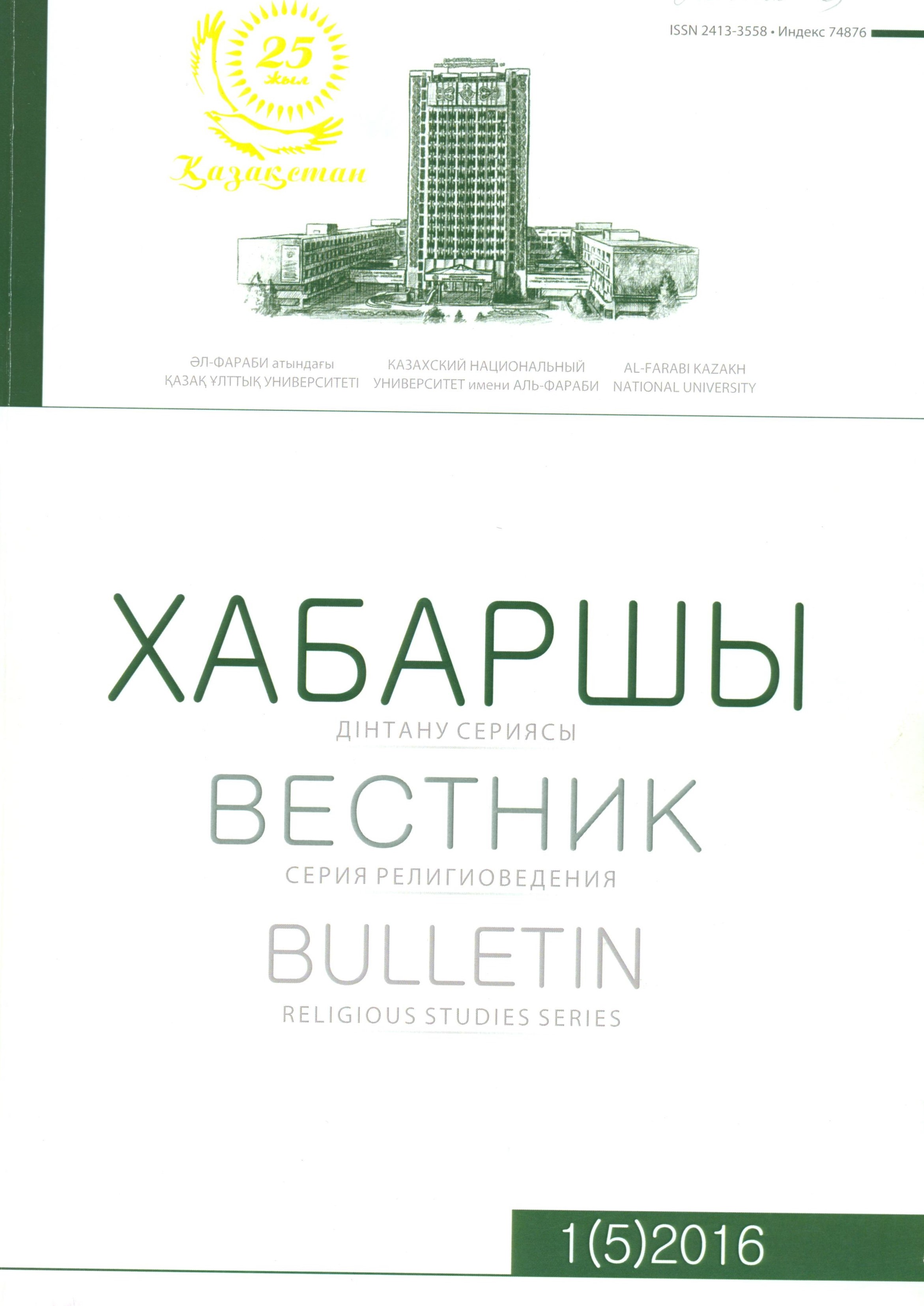Identify the of religious tolerance, types and models of tolerance in Kazakh society
DOI:
https://doi.org/10.26577/EJRS-2016-1-161Abstract
The article is devoted to the specifics of religious tolerance and evolution of the development of policy of religious tolerance and tolerant relations in modern society and ethno-cultural tolerance factor. The article shows the relevance of studying the tolerance problem in the modern conditions, including in Kazakhstan society. Tolerance is defined by the authors as the main principle of intercultural communication in the modern world. The article presents models and typology of tolerance. The authors examine and compare models of tolerance in the Western European world, Russian and Kazakh models of tolerance, reveal historical conditions and features of these models. The authors consider Kazakh traditional culture as great influence on the formation of the Kazakh model of tolerance. The authors reveal the causes and conditions of the formation of values of tolerance. The authors reveal the influence of religion and traditional values on the policy and the culture of tolerance in society in different eras. The authors show the role of tolerance in modern Kazakhstan society, the role of the principles of tolerant communication, behavior and communication in society and religious environment. The authors identify factors increasing the influence of ethnic and religious tolerance on contemporary social structures, groups and institutions of society and the state as a whole.
References
2. Современная конфликтология в контексте культуры мира. – М., 2001.
3. Бачинин В.А. Толерантность // Психология. Энциклопедический словарь. – СПб.: Изд-во Михайлова В.А., 2005.
4. Бардиер Г.Л. Социальная психология толерантности. – СПб, 2005.
5. Солдатова Г.М. Практическая психология толерантности, или как сделать так, чтобы зазвучали лучшие струны человеческой души? // Век толерантности. – 2003. – № 3 . – С. 60-78.
6. Ананьев Б.Г. Психология и проблемы человекознания: Избр. психолог. труды / Под ред. А.А. Бодалева. – Воронеж: МОДЭК, 2008.
7. Бодалев, А.А. Личность и общение: Избр. психол. тр. / А.А. Бодалев. – Изд. 2-е. – М. : Междунар. пед. академ., 1995.
8. Роджерс К. Свобода учиться. – М., 2002.
9. Асмолов А.Г. На пути к толерантному сознанию. – М., 2000.
10. Солдатова Г.У., Шайгерова Л.А., Шарова О.Д. Жить в мире с собой и другими: Тренинг толерантности для подростков. – М.: Генезис, 2000.
11. Тер-Минасова С.Г. Язык и межкультурная коммуникация. – M., 2000.
12. Толерантное сознание и формирование толерантных отношений (теория и практика): Сб. науч.-метод. статей. – М.: Издательство МПСИ; Воронеж: Издательство «МОДЭК», 2002.













